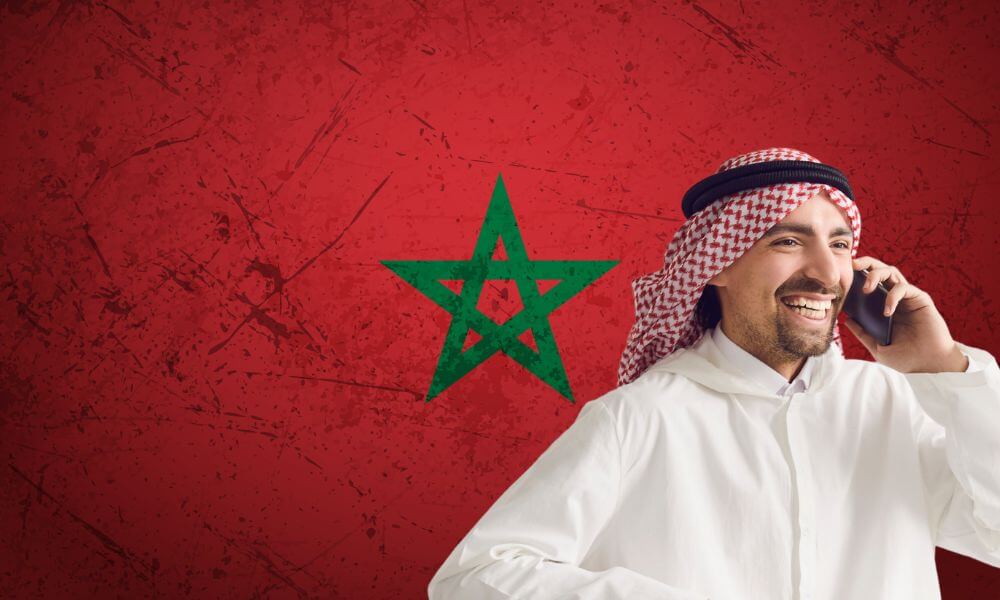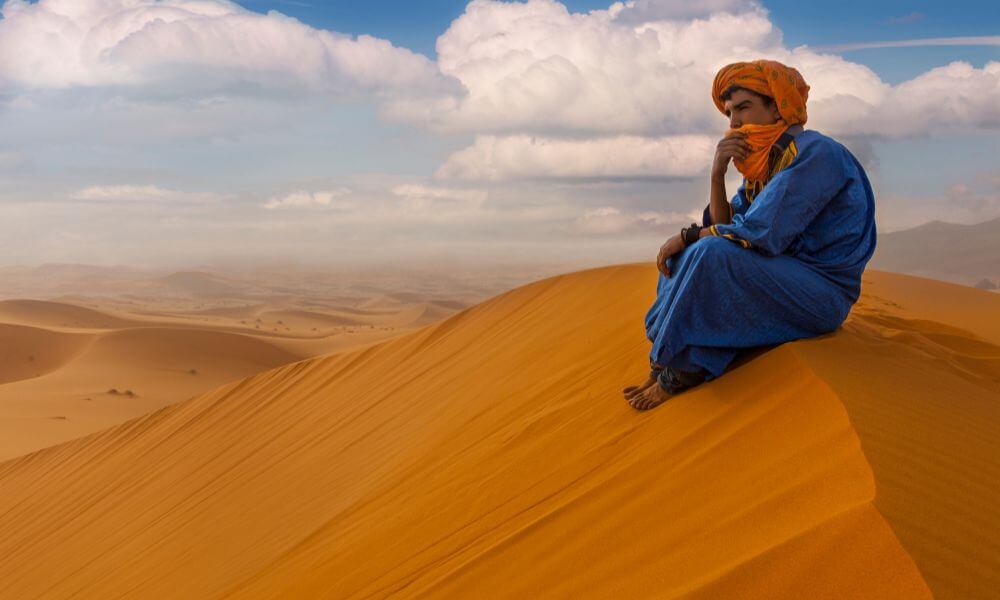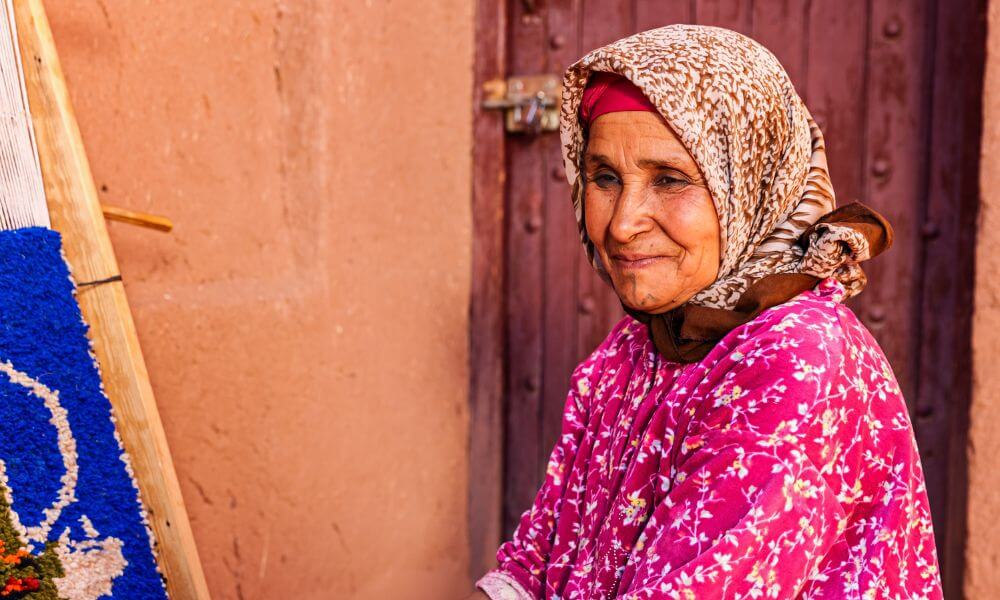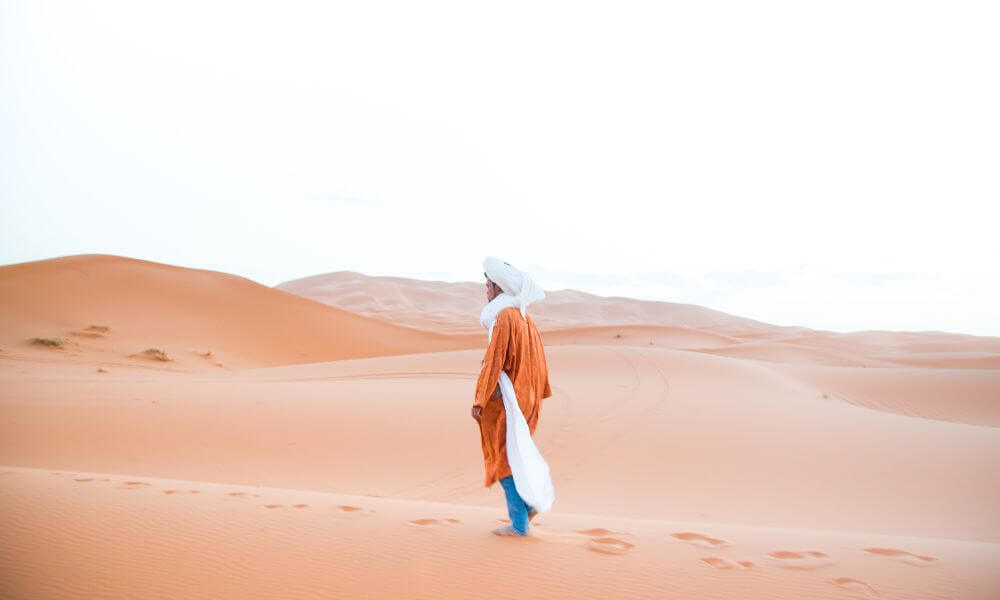The two official languages of Morocco are Standard Arabic and Standard Moroccan Berber. Moroccan Arabaic is the most common vernacular and the lingua franca. Arabic dialects such comprise about 92% of speakers in Morocco, with Berber languages making up 26%. Foreign languages like English, French and Spanish are also widely known.
Morocco has a fairly clear divide in terms of language families and how they are distributed across populations.
In terms of languages spoken as a first language, it’s fairly easy to say which the most common languages in Morocco are.
However, many people in the country speak at least two languages, and there are lingua francas and languages of prestige.
Let’s find out more.

[adinserter block=”8″]
What are the top three languages spoken in Morocco?
The top three most common languages of Morocco are Moroccan Arabic, Tashelhit, and French.
This is simply by the numbers of people who speak the languages, though naturally Arabic and the Berber language Tashelhit tend to be first languages whereas French is very common but usually as a second language.
Moroccan Arabic is vernacular form of Arabic spoken in Morocco.
It is spoken by around 90% of Morocco’s population, making it by far the single most common spoken first language in Morocco.
Standard Arabic is very often used for official and formal requirements like newspapers, government communications, the news and lots of television shows.
However, in Moroccan entertainment like cinema and advertising, the vernacular is used.
Taselhit is the most common of the Berber languages spoken in Morocco.
There are around 6 million native speakers representing about 14% of the population of Morocco.
This language is also known as Shilha. Berber languages of this kind serve as the vernacular for many Moroccan demographics.
Many Arabic speaking Moroccans often know Taselhit or other Berber languages, and vice versa.
French is very widely spoken though generally as a second language, spoken as a second language by around 33% of the population.
It often also serves as the language for official proceedings of one kind or another, and considered a prestige language used in universities and similar settings.
Though it is usually not a first language, then, French is among the most common spoken in Morocco.
Multilingualism is an extremely common phenomenon in Morocco, then, far more so than you might expect to find in a country of its size and population.
The region in which it is embedded is one of fairly large linguistic diversity, though.
What is the most commonly spoken language in Morocco?

Without doubt the single most common language in Morocco is Moroccan Arabic.
91% of the population speaks the language and the vast majority of them do so as a first language.
Many more speak it as a second. It is to some extent mutually intelligible with other regional forms of Arabic such as Tunisian and Algerian Arabic.
There are around 28 million people in the country who speak it as a first language, and around 5 million who speak it as a second.
Of Morocco’s rough population of 37 million, then, around 33 million speak Moroccan Arabic.
It uses the Arabic alphabet, and is part of the Afro-Asiatic language family.
Arabic in general serves many functions in Morocco.
As mentioned, the modern standard Arabic is considered a prestige language and thus is used in factual broadcasts.
Moroccan Arabic is more likely to be used in entertainment, though.
Both are fairly well mutually intelligible, though, so most speakers of Moroccan Arabic will be able to understand standard Arabic perfectly fine.
What about the question of French in Morocco?
Is Morocco French speaking?

Morocco is French speaking in the sense that large parts of the population know French as a second language.
It is not a native language, though, by any means.
From 1912 until they gained independence in 1956, Morocco was under the French Protectorate, signed after the French had been occupying the country since 1907.
So, French for a long time was the language of government and institutions, and that has left a lasting mark.
Many Moroccans know French as a second language, and indeed as mentioned it is often considered a language of prestige still used for official communications.
However, Morocco is still not French speaking in any meaningful way—you are unlikely to hear Moroccans walking down the street speaking French to one another.
What other languages are spoken in Morocco?

There are a handful of other languages spoken in Morocco.
English and Spanish are very common as second languages, with around 14% of the population knowing English and around 4.5% speaking Spanish.
English, as in virtually any other country on Earth, is an important international language for trade, diplomacy, and international relations, whether that be governmental or private interests.
Due to historical ties with Spain, many Moroccans also speak Spanish.
Again, it’s often a language of business and trade.
This is most common in the northern regions such as Tetouan and Tangier.
The vast majority of the country, though, as a first language, speaks either some form of Arabic dialect or some form of Berber language.
So, there are a fair few different languages spoken in Morocco.
However, most of the population’s first language and the primary vernacular is Moroccan Arabic.
Most of the population tend to have at least one other language under their belt, whether that’s a foreign language or another of the local languages.
Around 98% speak Moroccan Arabic and around 63% speak French as a first or second language.
[adinserter block=”8″]
More in Regional Languages
- What Languages Are Spoken In Afghanistan?
- What Languages Are Spoken In Africa?
- What Languages Are Spoken In Albania?
- What Languages Are Spoken In America?
- What Languages Are Spoken In Antwerp?
- What Languages Are Spoken In Argentina?
- What Languages Are Spoken In Australia?
- What Languages Are Spoken In Austria?
- What Languages Are Spoken In Bangladesh?
- What Languages Are Spoken In Barcelona?
- What Languages Are Spoken In Belgium?
- What Languages Are Spoken In Bolivia?
- What Languages Are Spoken In Bosnia?
- What Languages Are Spoken In Brazil?
- What Languages Are Spoken In Budapest?
- What Languages Are Spoken In China?
- What Languages Are Spoken In Colombia?
- What Languages Are Spoken In Croatia?
- What Languages Are Spoken In Cuba?
- What Languages Are Spoken In Cyprus?
- What Languages Are Spoken In Denmark?
- What Languages Are Spoken In Djibouti?
- What Languages Are Spoken In Ecuador?
- What Languages Are Spoken In Egypt?
- What Languages Are Spoken In El Salvador?
- What Languages Are Spoken In England?
- What Languages Are Spoken In Eritrea?
- What Languages Are Spoken In Estonia?
- What Languages Are Spoken In Ethiopia?
- What Languages Are Spoken In Fiji?
- What Languages Are Spoken In Finland?
- What Languages Are Spoken In Germany?
- What Languages Are Spoken In Japan?
- What Languages Are Spoken In Morocco?
- What Languages Are Spoken In South Africa?

